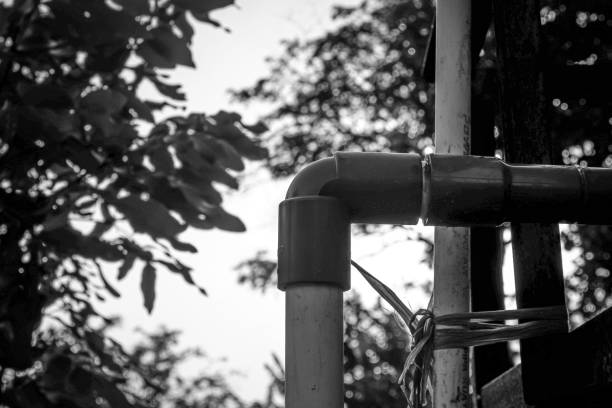The demand for HDPE pipes in Saudi Arabia continues to grow as both government and private sectors accelerate infrastructure development. With an ambitious national vision to diversify the economy and improve public utilities, Saudi Arabia now positions itself as a strong market for high-density polyethylene piping solutions. Local manufacturers and distributors have responded with competitive offers, better logistics, and quicker delivery schedules to meet the increasing demand.

Current Market Trends in Saudi Arabia
Saudi Arabia actively invests in modernizing its water networks, sewage systems, and gas pipelines. Construction and utility companies across the kingdom turn to HDPE pipes for their unmatched durability, chemical resistance, and long-term cost efficiency. As of 2025, the domestic market shows a clear preference for HDPE solutions over traditional metal or PVC alternatives.
Local manufacturers have optimized their production lines to deliver pipes that meet international standards such as ISO 4427 and ASTM D3035. These adjustments ensure compatibility with global infrastructure projects and enhance the reputation of Saudi-made HDPE pipes across the Middle East and North Africa (MENA) region.
Competitive Pricing and Bulk Offers
Suppliers across Riyadh, Jeddah, and Dammam currently offer discounted rates for large-volume purchases of HDPE pipes. The price per meter varies depending on diameter, pressure class, and standard compliance, but most distributors provide flexible options for municipal and industrial buyers. Many also include free or low-cost delivery within major cities and industrial zones.
For instance, 110mm SDR11 HDPE pipes for water applications now sell at competitive prices between SAR 18–25 per meter, depending on order size and location. Distributors also bundle installation fittings and welding services into package deals to add more value for clients managing turnkey projects.
Focus on Local Production and Supply Chain Stability
In recent years, the Saudi government encouraged local industries to reduce dependence on imports. As a result, many local manufacturers increased the production capacity of HDPE pipe using Saudi-sourced raw materials. This move not only ensures better control over pricing but also protects the domestic market from global supply chain disruptions.
Local producers now offer shorter lead times and more flexible customization, making it easier for engineering firms and contractors to meet project deadlines. With local warehousing and distribution networks in place, buyers can access a full range of HDPE pipe in standard and customized configurations.
Applications Driving High Demand
Several megaprojects, including NEOM, Qiddiya, and the Red Sea Project, rely on HDPE pipe for water supply, drainage, and gas distribution. These high-profile developments prioritize sustainability and long-term performance, both of which HDPE solutions support effectively.
In the agricultural sector, farms across Al-Qassim and Eastern Province use HDPE pipe for efficient irrigation systems. Their resistance to UV rays and chemical fertilizers ensures they function reliably under harsh desert conditions.
The oil and gas industry also invests heavily in HDPE pipe for corrosion-free fluid transport. Their lightweight nature makes them easier and faster to install in remote drilling areas or desert pipelines, saving time and labor costs.
Digital Platforms and E-Commerce Expansion
Many Saudi suppliers now use digital platforms to list the latest offers and specifications for HDPE pipe. Buyers can browse catalogs, compare prices, request quotes, and schedule deliveries online. E-commerce growth helps smaller construction companies and regional distributors access high-quality piping materials at competitive prices, without relying on large procurement agencies.
Leading brands often advertise flash sales, special offers, and loyalty discounts through their websites and WhatsApp business channels. This digital shift improves transparency and gives buyers more control over their supply chains.
Support Services Add More Value
Top distributors in the Saudi market go beyond simply selling HDPE pipe. They also provide fusion welding services, technical training for installation teams, and field support. Engineering teams often receive detailed specifications, design recommendations, and compatibility reports for fittings and accessories.
This added support helps contractors avoid installation errors and delays. It also reinforces the reliability of HDPE pipe in demanding environments such as deserts, coastal areas, and underground utilities.
Future Outlook for the Saudi Market
With continuous investment in infrastructure and water management, Saudi Arabia will maintain strong demand for HDPE pipe over the next decade. Government policies such as Saudi Vision 2030 promote sustainable development, where durable and eco-friendly materials play a central role.
Industry analysts expect the HDPE pipe market in the Kingdom to grow by over 7% annually. Manufacturers who offer competitive prices, quick delivery, and strong technical support will secure larger shares of this expanding market.
Contractors, project developers, and government agencies will continue choosing HDPE pipe to meet rising standards in performance, efficiency, and sustainability.
FAQ: HDPE Pipes in Saudi Arabia
Q1: Where can I buy HDPE pipes in Saudi Arabia?
You can find HDPE pipes through major suppliers in Riyadh, Jeddah, Dammam, and online B2B platforms that serve the local market.
Q2: What is the price range for HDPE pipes in Saudi Arabia?
Prices vary by size, pressure class, and order volume. On average, 110mm SDR11 HDPE pipes range from SAR 18 to SAR 25 per meter.
Q3: Do Saudi suppliers meet international standards for HDPE pipes?
Yes, most local manufacturers comply with ISO 4427, ASTM D3035, and other global standards to ensure quality and performance.
Q4: What applications are HDPE pipes used for in Saudi Arabia?
They are widely used in water supply, drainage, irrigation, gas distribution, and oil industry infrastructure.
Q5: Are HDPE pipes suitable for desert conditions?
Absolutely. HDPE pipes resist UV radiation, high temperatures, and chemical corrosion, making them ideal for Saudi Arabia’s environment.


















